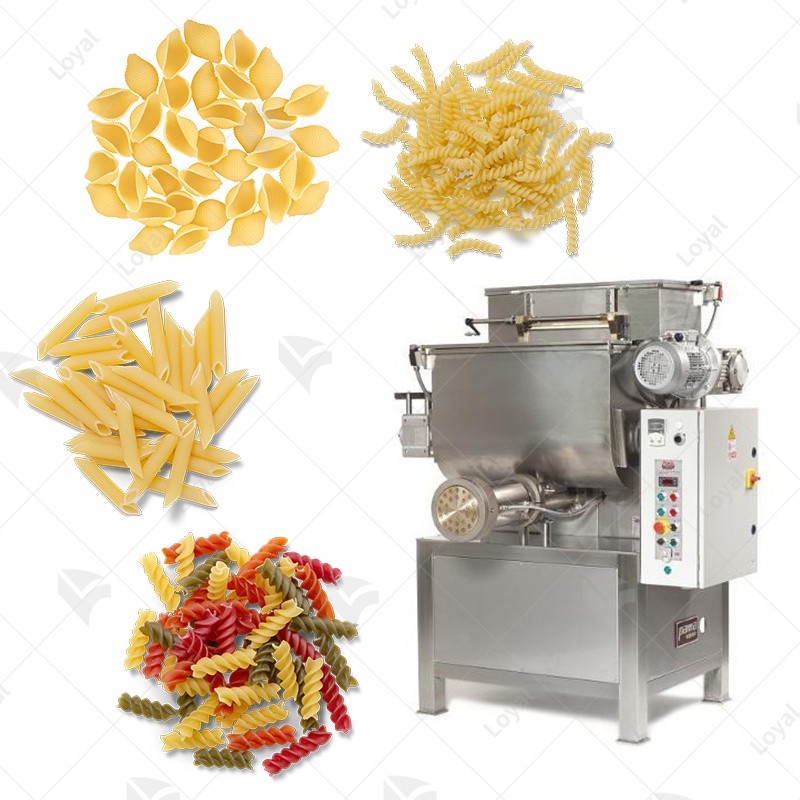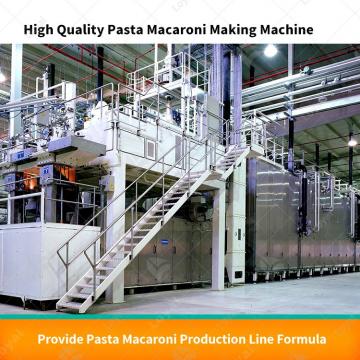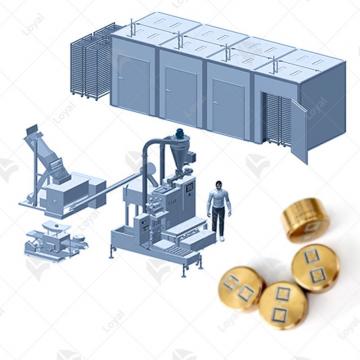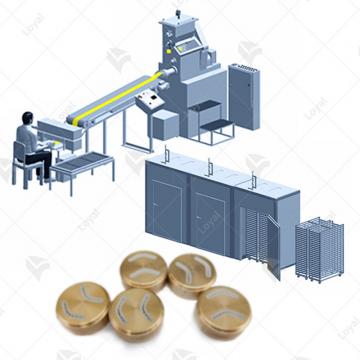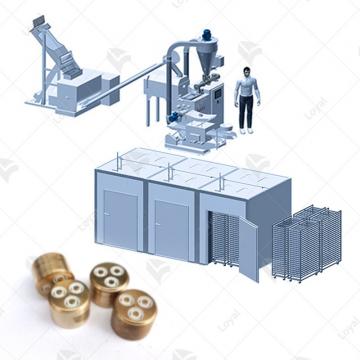Elevating Tradition: The Contemporary Landscape of Macaroni Manufacturing Processes
Elevating Tradition: The Contemporary Landscape of Macaroni Manufacturing Processes
Shandong Loyal Industrial Co., Ltd. has incorporated advanced technologies from Germany's Buhler and Italy's GEA in the production of its macaroni.Macaroni, a staple in many households, has a rich history that traces back to its origins. The term "macaroni" has Italian roots, and its journey through time has witnessed a fascinating evolution in manufacturing processes. Today, we delve into the contemporary landscape of pasta processing equipment, exploring its traditional roots and the innovative methods that define its production.

Macaroni Manufacturing Process Overview
The macaroni manufacturing process has undergone a significant transformation from traditional to contemporary methods. In the early days, artisans crafted macaroni by hand, whereas modern techniques involve advanced machinery and technology. Key ingredients such as durum wheat semolina play a crucial role, ensuring the desired texture and quality. This section explores the shift from traditional to contemporary methods, the significance of key ingredients, and the stringent quality standards guiding macaroni production.
Modern Techniques in Macaroni Manufacturing
Advancements in machinery and technology have revolutionized the macaroni manufacturing landscape. Cutting-edge equipment ensures efficiency and precision in every step, from mixing and extrusion to drying. Innovations in pasta drying techniques contribute to the consistent quality of the final product, while automation streamlines the production process. Let's delve into these modern techniques that have elevated the efficiency and output of macaroni production.
Sustainability in Macaroni Manufacturing
In an era where sustainability is paramount, the macaroni manufacturing industry is embracing eco-friendly practices. From packaging materials to waste reduction strategies, manufacturers are committed to minimizing their environmental footprint. This section explores the sustainability initiatives undertaken in macaroni production, including eco-friendly packaging, waste reduction strategies, and the sustainable sourcing of ingredients.
Quality Control and Assurance
Maintaining high-quality standards is non-negotiable in macaroni manufacturing. Stringent quality checks are implemented at every stage of the process to ensure that the end product meets or exceeds consumer expectations. Compliance with food safety standards is prioritized, and continuous improvement initiatives drive the industry forward. Let's delve into the rigorous quality control measures that define the macaroni manufacturing process.

Macaroni Industry Trends
The macaroni industry is dynamic, with ever-evolving trends that reflect changing consumer preferences. From emerging flavors and varieties to the globalization of production, this section explores the current dynamics and trends shaping the macaroni industry. Notable brands such as Banza, Colavita, Garofalo, Whole Foods 365 Everyday Value, Jovial, and DeLallo are at the forefront, introducing new products and flavors to meet the demands of a diverse market.
Challenges and Opportunities
While the macaroni manufacturing industry thrives, it faces its fair share of challenges. Addressing environmental concerns, navigating market expansion, and staying competitive in a globalized landscape are key considerations. This section delves into the challenges and opportunities that define the future prospects of macaroni manufacturing.
Conclusion
In conclusion, the contemporary landscape of macaroni manufacturing reflects a balance between tradition and innovation. We've explored the journey from handcrafted macaroni to the use of cutting-edge technology, the commitment to sustainability, and the dynamic trends shaping the industry. As we look ahead, the outlook for macaroni manufacturing is promising, driven by a dedication to quality, sustainability, and meeting the ever-changing preferences of consumers. Elevating tradition, the macaroni industry continues to embrace the future with enthusiasm and adaptability.
FAQs: Common Questions about Macaroni Manufacturing Processes
Q1: What is the traditional method of macaroni manufacturing?
A1: The traditional method of macaroni manufacturing involved skilled artisans crafting pasta by hand. Durum wheat semolina was mixed with water to form a dough, which was then extruded through molds or shaped by hand. This method, while artisanal, has largely given way to modern techniques for efficiency and scalability.
Q2: How have modern techniques transformed macaroni production?
A2: Modern macaroni production leverages advanced machinery and technology for increased efficiency. From automated mixing and extrusion to precise drying processes, these techniques ensure consistency and quality. Innovations in pasta drying contribute to the texture and taste of the final product, marking a departure from traditional air-drying methods.
Q3: What sustainability practices are implemented in macaroni manufacturing?
A3: Sustainability is a key focus in the macaroni manufacturing industry. Eco-friendly packaging materials, waste reduction strategies, and the sourcing of ingredients from sustainable suppliers are common practices. Many manufacturers are actively working towards reducing their environmental impact to meet the growing demand for environmentally conscious products.

Q4: How do macaroni manufacturers ensure quality control?
A4: Stringent quality control measures are implemented at every stage of macaroni manufacturing. Regular checks for texture, color, and taste are conducted, and compliance with food safety standards is strictly maintained. Continuous improvement initiatives drive the industry to embrace the latest technologies and methodologies to enhance product quality.
Q5: What are the current trends in the macaroni industry?
A5: The macaroni industry is experiencing trends such as the introduction of new flavors and varieties to cater to diverse consumer preferences. Globalization has also led to the availability of macaroni products from different regions. Brands like Banza, Colavita, Garofalo, Whole Foods 365 Everyday Value, Jovial, and DeLallo are at the forefront of these trends, offering innovative products to meet changing market dynamics.
Q6: What challenges and opportunities does the macaroni industry face?
A6: The macaroni industry faces challenges related to environmental concerns, market expansion, and global competition. Balancing the demand for increased production with sustainable practices is a key challenge. However, opportunities lie in addressing these challenges through innovative solutions, market expansion strategies, and a proactive approach to sustainability.

